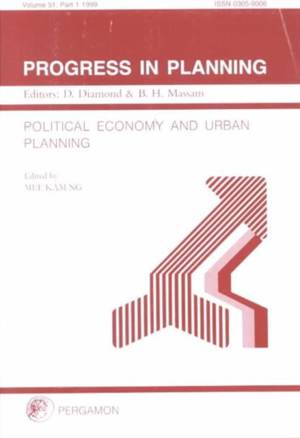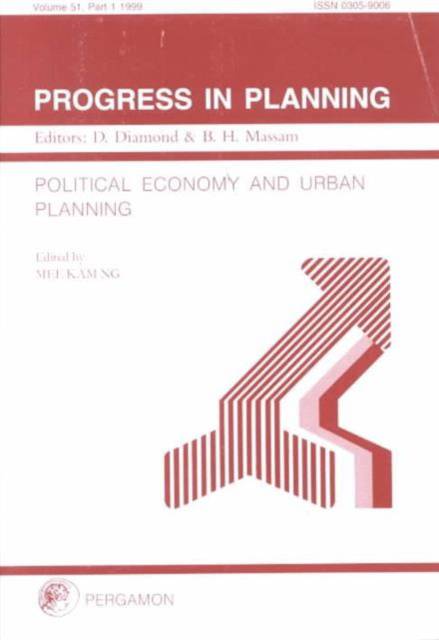
- Retrait gratuit dans votre magasin Club
- 7.000.000 titres dans notre catalogue
- Payer en toute sécurité
- Toujours un magasin près de chez vous
- Retrait gratuit dans votre magasin Club
- 7.000.0000 titres dans notre catalogue
- Payer en toute sécurité
- Toujours un magasin près de chez vous
Progress in Planning, Volume 51, Part 1
Political Economy and Urban Planning: A Comparative Study of Hong Kong, Singapore and Taiwan
Mee Kam NgDescription
This study compares urban planning mechanisms that operate within Hong Kong, Singapore and Taiwan. The political economy of Hong Kong is in a state of flux. While the power of the government and the corporate interests remain largely intact, they are challenged by pro-China interests and a democratizing civil society. The land use planning system reflects this power contest. In the face of both strong resistance from the development industry and China's eagerness to perpetuate a market-led society in post-1997 Hong Kong, the outcome of the power contest remains uncertain. The state-centred political economy of Singapore has bred a top-down land use planning system centrally controlled by the government. Not only has the government dominated the plan making process, the legislation has entrusted the public sector to scrutinize and guide private development through a discretionary development control system.
Spécifications
Parties prenantes
- Auteur(s) :
- Editeur:
Contenu
- Nombre de pages :
- 90
- Langue:
- Anglais
- Collection :
Caractéristiques
- EAN:
- 9780080435800
- Date de parution :
- 30-06-99
- Format:
- Livre broché
- Format numérique:
- Trade paperback (VS)
- Dimensions :
- 175 mm x 245 mm
- Poids :
- 179 g







